Publications
Articles, publications, books, tools and multimedia features from the U.S. Institute of Peace provide the latest news, analysis, research findings, practitioner guides and reports, all related to the conflict zones and issues that are at the center of the Institute’s work to prevent and reduce violent conflict.
Question And Answer
Blinken’s China Trip Shows Both Sides Want to Stabilize Ties
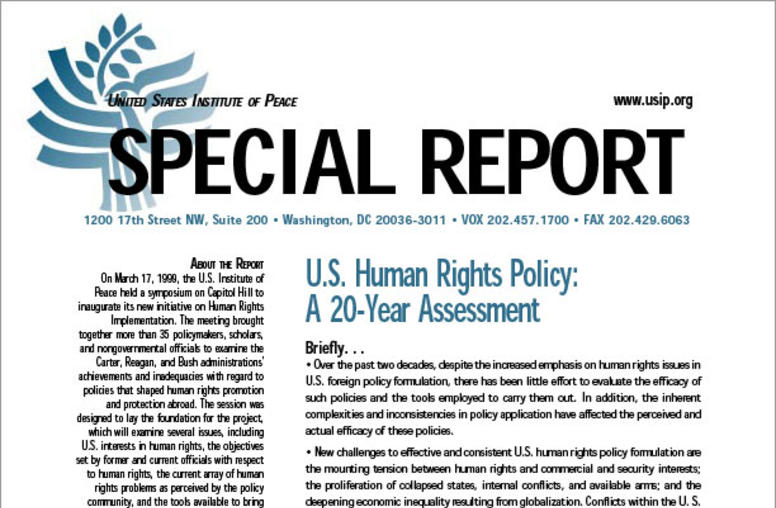
U.S. Human Rights Policy: A 20-Year Assessment
Summary Over the past two decades, despite the increased emphasis on human rights issues in U.S. foreign policy formulation, there has been little effort to evaluate the efficacy of such policies and the tools employed to carry them out. In addition, the inherent complexities and inconsistencies in policy application have affected the perceived and actual efficacy of these policies.
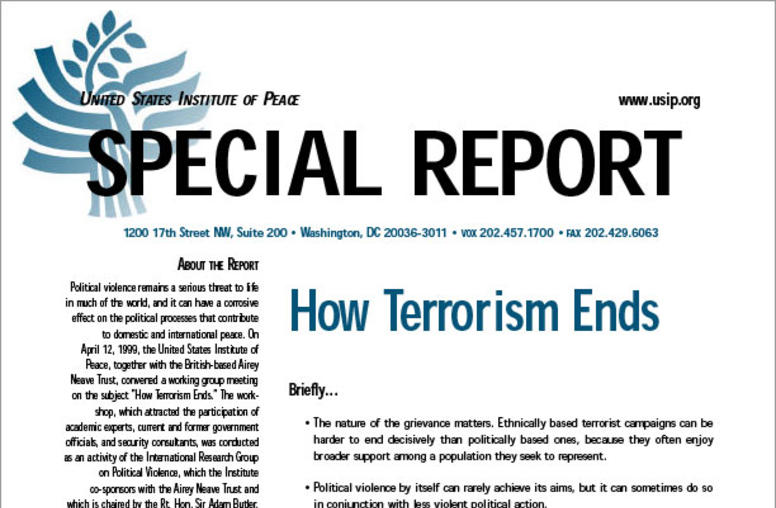
How Terrorism Ends
Summary The nature of the grievance matters. Ethnically based terrorist campaigns can be harder to end decisively than politically based ones, because they often enjoy broader support among a population they seek to represent. Political violence by itself can rarely achieve its aims, but it can sometimes do so in conjunction with less violent political action.
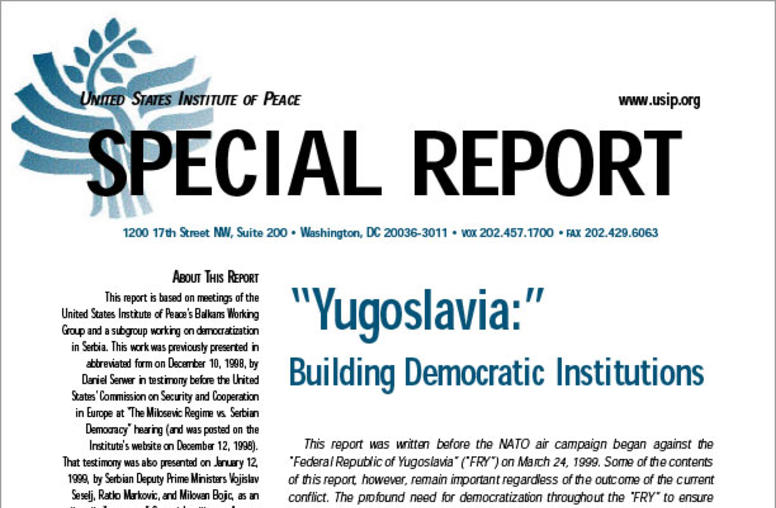
"Yugoslavia": Building Democratic Institutions
This report was written before the NATO air campaign began against the "Federal Republic of Yugoslavia" ("FRY") on March 24, 1999. Some of the contents of this report, however, remain important regardless of the outcome of the current conflict. The profound need for democratization throughout the "FRY" to ensure long-term stability in the region has been made clearer in these past few weeks. Summary The possibility of finding solutions to the "Federal Republic of Yugoslavia's" long...
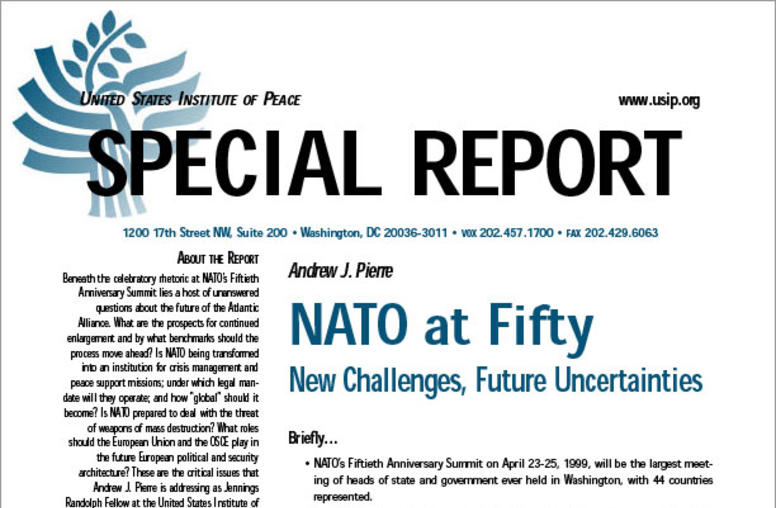
NATO at Fifty: New Challenges, Future Uncertainties
Summary NATO's Fiftieth Anniversary Summit on April 23-25, 1999, will be the largest meeting of heads of state and government ever held in Washington, with 44 countries represented. Despite promises of an "open door" to NATO membership and the expectation that a second tranche would be announced, none of the current nine "aspirants" are slated to be invited, nor will a date for the second round be announced.
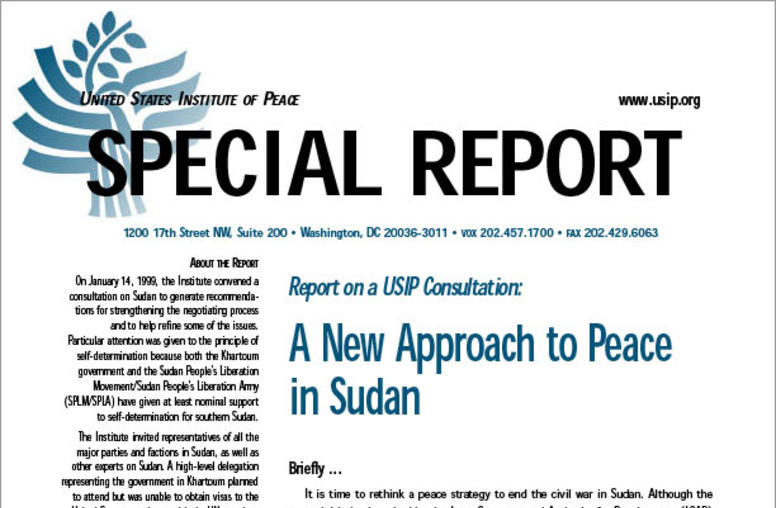
A New Approach to Peace in Sudan: Report on a USIP Consultation
Summary It is time to rethink a peace strategy to end the civil war in Sudan. Although the peace initiative launched by the Inter-Governmental Authority for Development (IGAD) in 1993 showed some initially promising results, the military situation is now stalemated, famine has plagued large sections of the South, and the IGAD mediation process has brought no recent results. The consultation concluded that: The IGAD process needs to remain the vehicle for mediation and negotiatio...
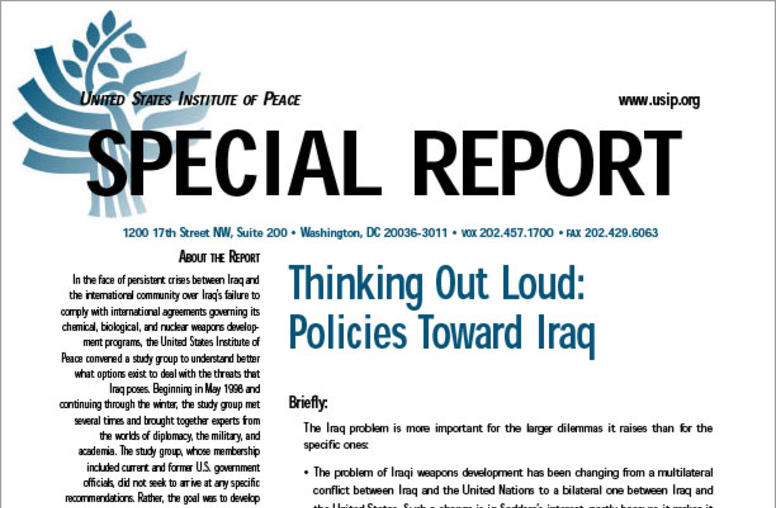
Thinking Out Loud: Policies Toward Iraq
In the face of persistent crises between Iraq and the international community over Iraq's failure to comply with international agreements governing its chemical, biological, and nuclear weapons development programs, the United States Institute of Peace convened a study group to understand better what options exist to deal with the threats that Iraq poses.
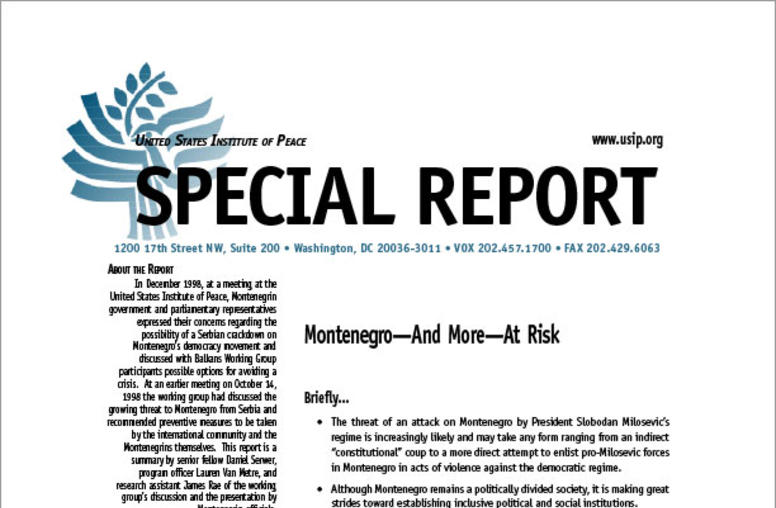
Montenegro—And More—At Risk
Summary The threat of an attack on Montenegro by President Slobodan Milosevic's regime is increasingly likely and may take any form ranging from an indirect "constitutional" coup to a more direct attempt to enlist pro-Milosevic forces in Montenegro in acts of violence against the democratic regime. Although Montenegro remains a politically divided society, it is making great strides toward establishing inclusive political and social institutions.
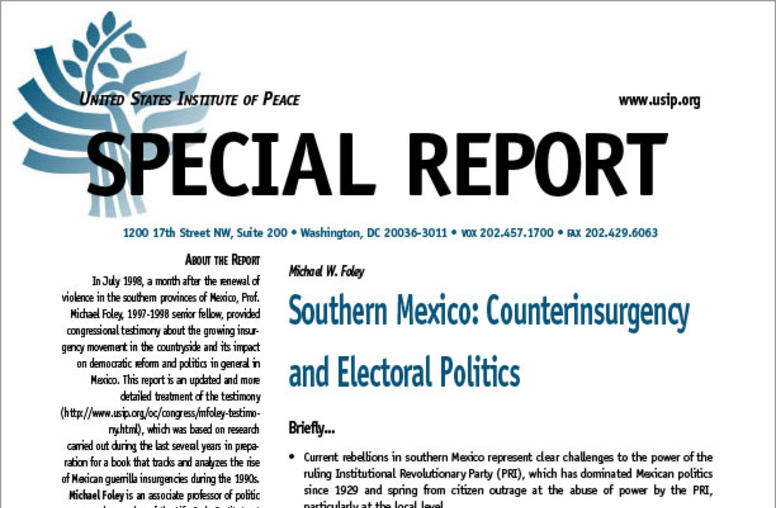
Southern Mexico: Counterinsurgency and Electoral Politics
Summary... Current rebellions in southern Mexico represent clear challenges to the power of the ruling Institutional Revolutionary Party (PRI), which has dominated Mexican politics since 1929 and spring from citizen outrage at the abuse of power by the PRI, particularly at the local level. The current government's strategy has combined conciliatory gestures with military counterinsurgency operations and dialogue in attempts to buy support through generous public works projects, with l...
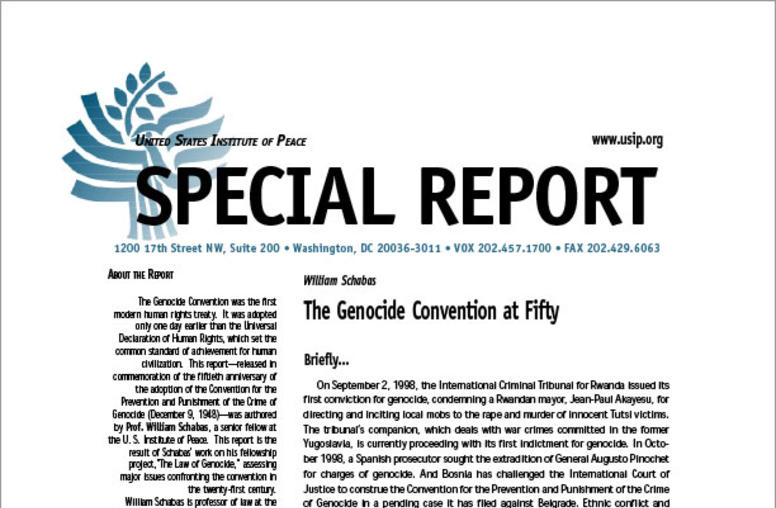
The Genocide Convention at Fifty
Summary On September 2, 1998, the International Criminal Tribunal for Rwanda issued its first conviction for genocide, condemning a Rwandan mayor, Jean-Paul Akayesu, for directing and inciting local mobs to the rape and murder of innocent Tutsi victims. The tribunal's companion, which deals with war crimes committed in the former Yugoslavia, is currently proceeding with its first indictment for genocide. In October 1998, a Spanish prosecutor sought the extradition of General Augusto Pinoch...
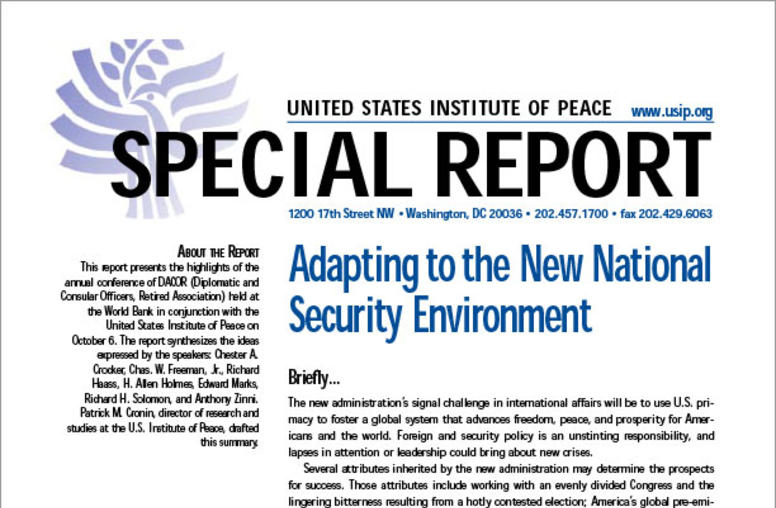
Adapting to the New National Security Environment
Summary The new administration's signal challenge in international affairs will be to use U.S. primacy to foster a global system that advances freedom, peace, and prosperity for Americans and the world. Foreign and security policy is an unstinting responsibility, and lapses in attention or leadership could bring about new crises. Several attributes inherited by the new administration may determine the prospects for success. Those attributes include working with an evenly divided Congres...